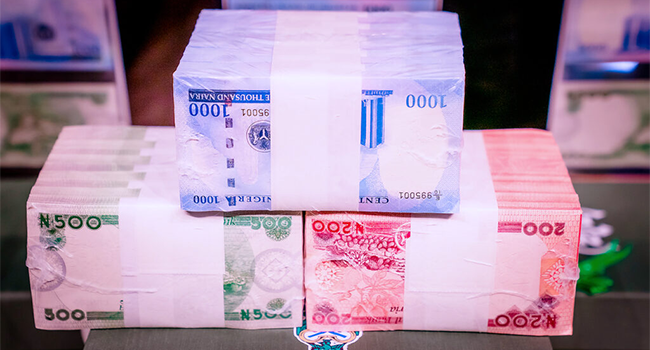The Senate has passed for second reading fours bills designed to reform Nigeria’s tax system.
This followed the presentation of the general principles of the bills by the Senate Leader, Opeyemi Bamidele (APC-Ekiti), during plenary on Thursday.
The four bills, which were first read on Oct. 30, are:o Joint Revenue Board of Nigeria Establishment Bill, 2024; Nigeria Revenue Service Establishment Bill, 2024; Nigeria Tax Administration Bill, 2024 and the Nigeria Tax Bill, 2024.
Leading the debate on the general principles of the bills, Opeyemi said
that they represented a significant move toward overhauling the country’s tax system.
He said that the bills were aimed at simplifying the tax landscape, reducing the burden on small business and streamlining how taxes would be collected.
According to him, the four bills seek to ensure uniformity in tax revenue administration in the country, in accordance with the provisions of the constitution and eliminate the incidence of double taxation across the country.
He said that the bills also sought to deploy taxation as a tool for encouraging private sector investments in critical industries and boosting individuals’ disposable incomes through targetted tax exemptions, as captured in the various bills.
“In the area of tax exemptions, there is a proposal to exempt small business operators, while those with annual turnover of N50 million or less are equally exempted from payment of taxes.
“Similarly, there is a reduction in company’s income tax from the current 30 per cent to 25 per cent by 2026.
“As part of deliberate attempt to curtail incidence of double taxation and multiplicity of taxes and levies, multiple taxes hitherto paid by companies under various tax heads namely: 2.5 per cent education tax, 0.25 per cent NASENI tax have been harmonised into a development levy of two per cent.
“This will be applied by 2030 to fund the newly-established student loan scheme which will benefit many Nigerian youths.
” Unlike like what is obtainable under the existing tax regime whereby the Federal Government takes a lion share of VAT revenues, it is proposed that the sharing formula should allow state governments to share 55 per cent of VAT revenue from the current 15 per cent to 10 per cent sharing formula,” he said.
He, however, said local governments share of VAT revenue remained unaffected.
“Relatedly, basic items consumed by Nigerian households, such as food items, medical services and pharmaceuticals, educational fees, electricity, etc. are exempted from VAT.
“Again, as part of efforts to ease the administration of income taxes and levies across the federation, there is a reasonable effort made to consolidate core tax statutes and related tax legislations,” he said.
The senator said that the bills contained innovative and people-oriented proposals as part of government’s deliberate fiscal and tax reform measures.
He said that the bills were meant to cushion the effects of the ongoing broader economic policies, such as the removal of subsidy on petroleum products.
Opeyemi said that the innovations were also tailored toward implementing cost-reflective electricity tariffs in the power sector.
He urged the lawmakers to see the bills as part of the required legislative intervention to support the ongoing fiscal and tax reform measures needed to reposition the Nigerian economy for growth and productivity.
“These bills should be considered with great sense of patriotism and exercise of the powers of the National Assembly under Section 59 of the 1999 Constitution regarding imposition of taxes.
“I, therefore, urge my distinguished colleagues to support the bills for second reading.
Contributing, Sen. Seriake Dickson (PDP-Bayelsa) lauded the bills, saying that they would entrench the much-canvassed fiscal federalism.
However, Sen.Ali Ndume (APC-Borno) said although he was not against reforms and tax reforms in Nigeria, he, however, said that the timing of the bills was the issue.
Ndume said that the issue of derivation proposed in the bills was contradictory, stressing that the constitution needed to be amended for some of the proposals in the bills to sail through.
He said that in inline with the positions of the governors and traditional rulers, the bills should be withdrawn for further consultations.
Ndume specifically said that the issue of VAT and derivation should be addressed, adding that senate should consult first before further legislative inputs could be made on the bills.
However, Senate Chief Whip, Sen. Mohammed Monguno (APC-Borno), vehemently disagreed with Ndume, saying that his position negated the senate rule on processes of lawmaking.
He said Section 60 of 1999 Constitution, as amended, empowered the senate to regulate its procedure.
According to Monguno, the process of law-making, as stated in the senate’s rule, was unambiguous, nothing that after second reading, the bill will be transmitted for public hearing, where Nigerians of all groups will be free to make their inputs on the bills.
The senator said that Ndume’s suggestion for senate to withdraw the bills was foreign to legislative process, describing the suggestion as an academic exercise that was not worthy of legislative consideration.
According to him, the bills are noble and pro-people, as it will reduce the tax burden on Nigerians.
President of the Senate, Godswill Akpabio, after the reading of the bills for the second time, said all concerned stakeholders, should be invited at the public hearing to make their inputs before final clause-by-clause consideration by the senate.
He consequently referred the bills to Senate Committee on Finance for further legislative inputs, with a directive to return back to plenary in six weeks.

